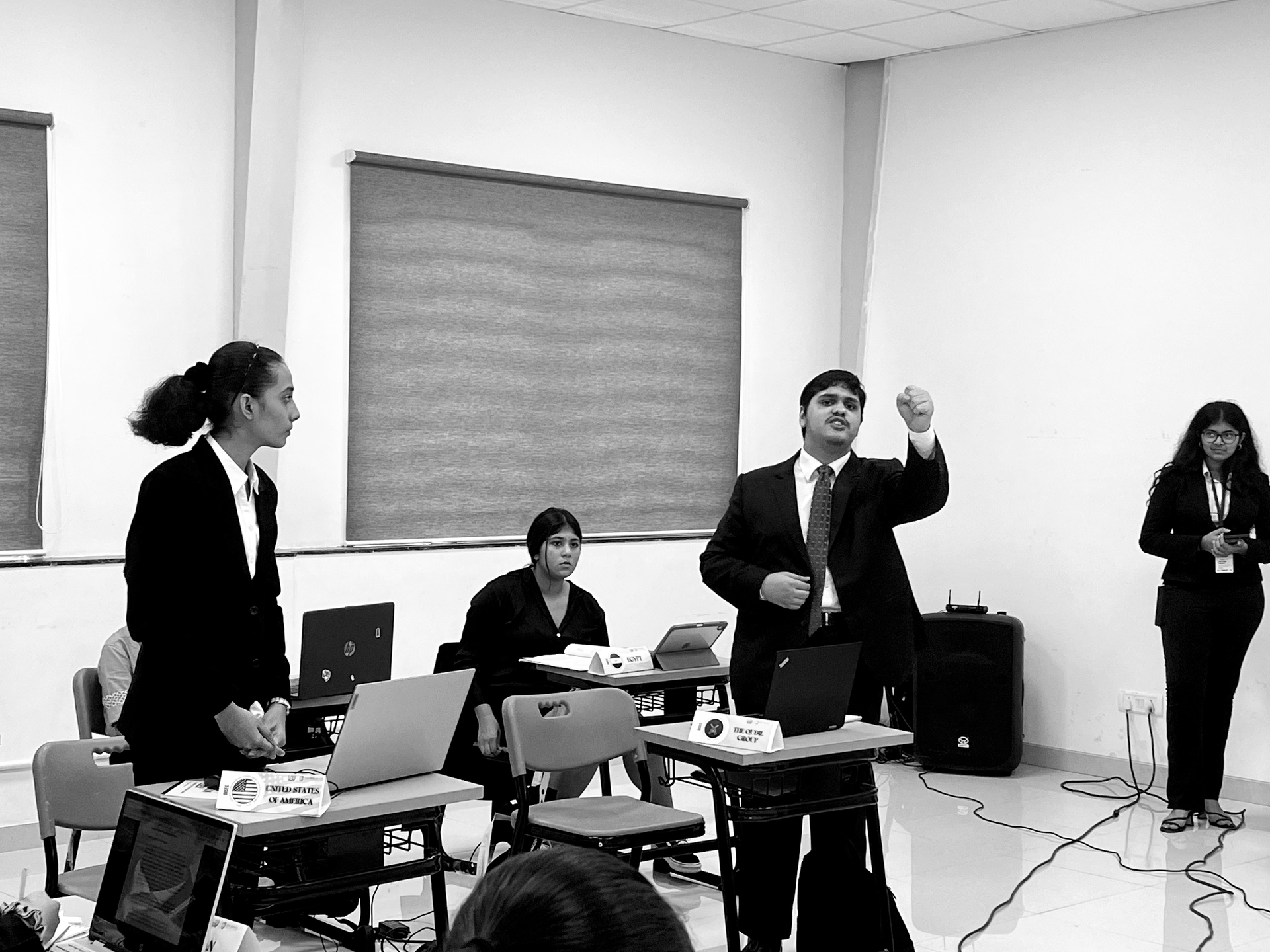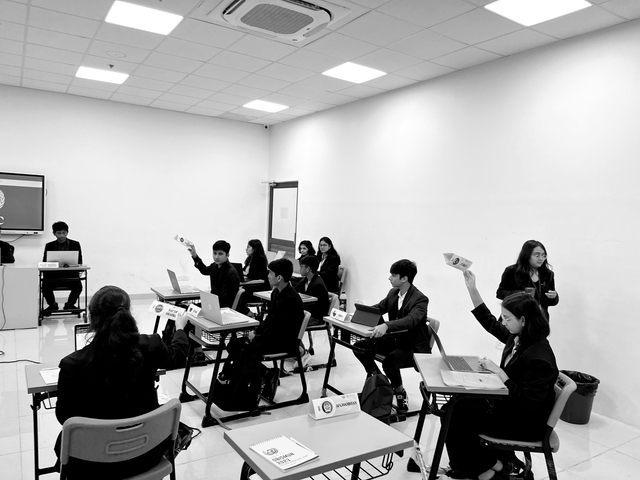Mastering Moderated and Unmoderated Caucuses: Tips for MUN Success
Aditi Paranjape • 2024-07-09
The best caucus guide for an MUN!
Whether you’re an old time MUN delegate looking for a memory refresher on common etiquette during a moderated and an unmoderated caucus, or this is your first time participating in a MUN, a key to success in a MUN as a delegate is knowing how to go about those moderated and unmoderated caucuses.
Moderated caucuses
A moderated caucus, also called a mod-cauc for short, is a timed, focused session that is moderated by the executive board. A moderated caucus is a debate that is focused on problem solving and the logistics of a small issue within the larger scheme of things in the committee you are assigned to, after a mod-cauc has been proposed, any delegate can raise their placard to become a part of the debate. A moderated caucus gives delegates a structured way to effectively discuss solutions for different problems relevant to the agenda at hand.
To motion for a moderated caucus, a delegate may simply raise their placard and motion for a moderated caucus to take place, for example: ‘motion for a 5 minute moderated caucus with 45 second speaking time for each delegate.’ If you feel like the time is not appropriate, you may also motion to increase the time proposed for the moderated caucus by x minutes. You may choose to talk on whichever topic you think is most important for the committee to talk about at that moment, however the topic shouldn’t be too broad or too narrow.
If the moderated caucus you have motioned for has passed, you either have the choice of speaking first or last, choose wisely! If you're a delegate who hasn’t motioned for a mod-cauc, you may simply raise your placard to join the debate, if you want to forgo the debate, you need not raise your placard. If you have finished speaking before your assigned time, you may end with ‘Yield my time remaining to the chair.’
If you’re worried about giving your speech for the moderated caucus, don't be! Here are a few things to keep in mind:
- Connect your points: during your speech, make sure to pay keen attention to what other delegates have said to make connections in your own speech. Mention these connections and move on with your speech.
- Stay on topic: Do not stray while giving your speech, stick to the topic of the mod-cauc and keep your points stream-lined, this helps your speech become more focused and doesn't make you lose time talking about unrelated things.
- Data: Always back your points with factual data from reliable sources. It will only make your argument stronger.
- Structure: your speech should be structured well, provide context at the beginning, back up your argument with supporting points during the middle and gain support by the end for advocating for a resolution.
Unmoderated caucuses
An unmoderated caucus, also called an unmod-cauc for short, are timed informal discussions without any individual time limits. During this time you can meet up and talk to any other delegate whose ideas align with your own and whom you can talk to in order to solve or discuss the problems brought up during the moderated caucuses. During this time you can write working papers, form blocs with other delegates and also draft resolutions. You can also form alliances with the other delegates to suit your own purpose. You are free to walk around the room after an unmoderated caucus has been proposed.
To propose an unmoderated caucus a delegate may raise their placard and motion a movement, for example: ‘motion for a 5 minute unmoderated caucus.’ After this, the committee is allowed to vote in favour of the motion. If the majority of the delegates raise their placards, the motion is accepted and the unmoderated caucus may proceed.
An unmoderated caucus allows you to
- Meet other delegates: you may walk around the room to mingle with other delegates, hear their ideas and share your own, this gives you a chance to hear out any opposing ideas from yours.
- Form blocs: A bloc is a group of delegates who work together to draft a resolution for the conflict occurring in their committee.
- Gain support for your resolution: Unmods are good opportunities to draft your resolutions alongside your bloc and talk to other delegates outside your bloc. Just a reminder, to submit your resolutions, you will need a certain number of signatories from other delegates.
Further tips
- Practise your speeches: the typical speaking time is 45-90 seconds only, you will have to make your points concise but accurate, practising your speech and talking speed will greatly improve your experience
- Give others a chance to speak: It is very normal to be enthusiastic while participating in a MUN, however giving your fellow delegates the chance to lay down their points will give everybody in the room a chance to understand their stances and give the other delegates chances to speak. Typically, the chair would encourage the more silent delegates to speak, yet, it is not entirely discouraged to speak multiple times during a mod-cauc.
- Motioning: The chair would usually be more favourable for motions for a mod-cauc earlier into the conference, as this allows the delegates to hear each other's points. Motioning for a shorter unmod-cauc (5-10 minutes) is also preferred by the chair, however once resolutions are being drafted, the unmod-cauc can be longer.
- Remaining respectful: Remember, for an unmoderated caucus, although it is more informal than a moderated caucus, it is important to remain respectful of your fellow delegates and hear out everybody’s ideas and inputs.
Lastly, whether you're a seasoned MUN delegate or a newcomer, don't let nerves get the best of you! By following and understanding the tips above and staying calm during the debate, you'll undoubtedly perform well at the DBIS MUN. Understanding the etiquette for both moderated and unmoderated caucuses will allow you to contribute significantly to resolutions and have a positive MUN experience. Good luck, future delegates!
See More Posts
Don Bosco International Model United Nations 2024
Don Bosco International School, Nathalal Parekh Marg, Matunga, Mumbai - 400019
Copyright © 2024 DBIS, Inc. All rights reserved.



